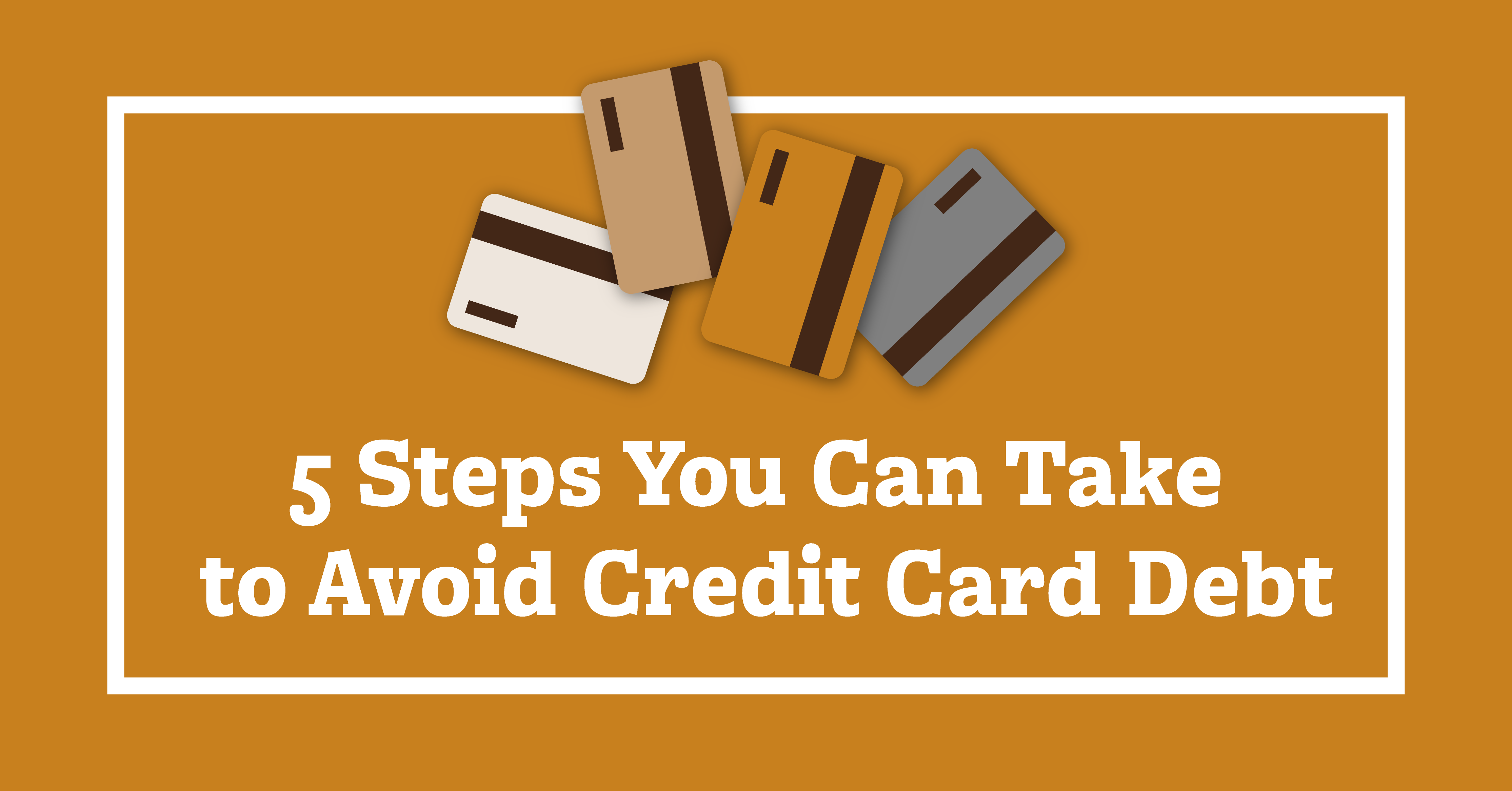
September 22, 2020
Having a good credit score allows you to make larger purchases like owning a home or buying a new car more easily. Opening a credit card account can be a good start to building a good score, but with the privilege of credit comes the responsibility to use it wisely. In 2019, Americans carried over 4.2 trillion dollars in credit card debt, meaning most are paying way more than they need to for the things they buy. Here are five steps you can take to avoid unmanageable credit card debt.
Cash advances have the highest fees and interest rates of any credit card transaction. If you don’t have the cash to withdraw from your bank account, you don’t have enough to pay off the credit card fees. Cash withdrawals from a credit card are some of the first signs seen in those with credit card debt. If you find yourself using money you don’t have in the bank, stop yourself before it gets worse. Cut up the card, pay off the remaining balance, and close the account as soon as you can. Self-control is the first step in preventing credit card debt.
It might seem logical that with a steady income you should be able to pay off a large purchase in smaller segments. But, have you ever heard the statement “don’t count your chickens before they hatch?” If your budget doesn’t have an extra $100-$150 to spend, you don’t have enough to pay off the interest that comes with it. You also never know what emergency expenses may arise. Interest rates on credit card debt is much higher than student loan rates. If you can’t afford it without a credit card, you shouldn’t buy it with a credit card. You’re better off saving up for more expensive items. This way you know you can afford it and you save money by not spending extra on interest payments.
The sooner you pay off your full monthly statement the better. Timely payments prevent interest payments and give you a better credit score. If you only pay the minimum required amount, you’ll need to start paying interest. Most credit card companies charge around 15% – 18% interest. Your credit card statement says you owe $400 and your annual interest rate (APR) is 15%. Let’s say instead of paying the full amount of $400, you only pay the minimum required payment of $35. Even though you paid $35, your statement will say you owe $370 next month. Continue paying only $35/month and you will end up paying over $434 for your original $400 purchases.
If you can’t pay off your credit cards right away, then make sure not to use up your entire credit limit. Cap off your credit card usage to an amount already in your budget. For example, only use your credit card to pay for gas or monthly groceries. These are things generally built into your budget that you know you can afford them. Using your credit card for entertainment or unexpected shopping sprees can add up fast. Before you know it, you have spent way more than you can afford to pay off.
The more cards you have, the more money you could end up spending and owing. Limit yourself and don’t open more accounts than you can handle. If you don’t have enough money to pay off one card, you won’t have enough to pay off two or three. Opening multiple credit cards might seem like it can help your credit score, and to a point that can be true. But if you can’t pay them off each month it will actually hurt your score. Having one credit card and timely payments is better than mismanaging too many cards.
Credit cards can have many good benefits, like helping you have a credit score for buying a house or a car. But not using them wisely hurts your credit score and uses up what you could have saved for the future. Put these five steps into practice and you’ll be well on your way to creating a better financial future.